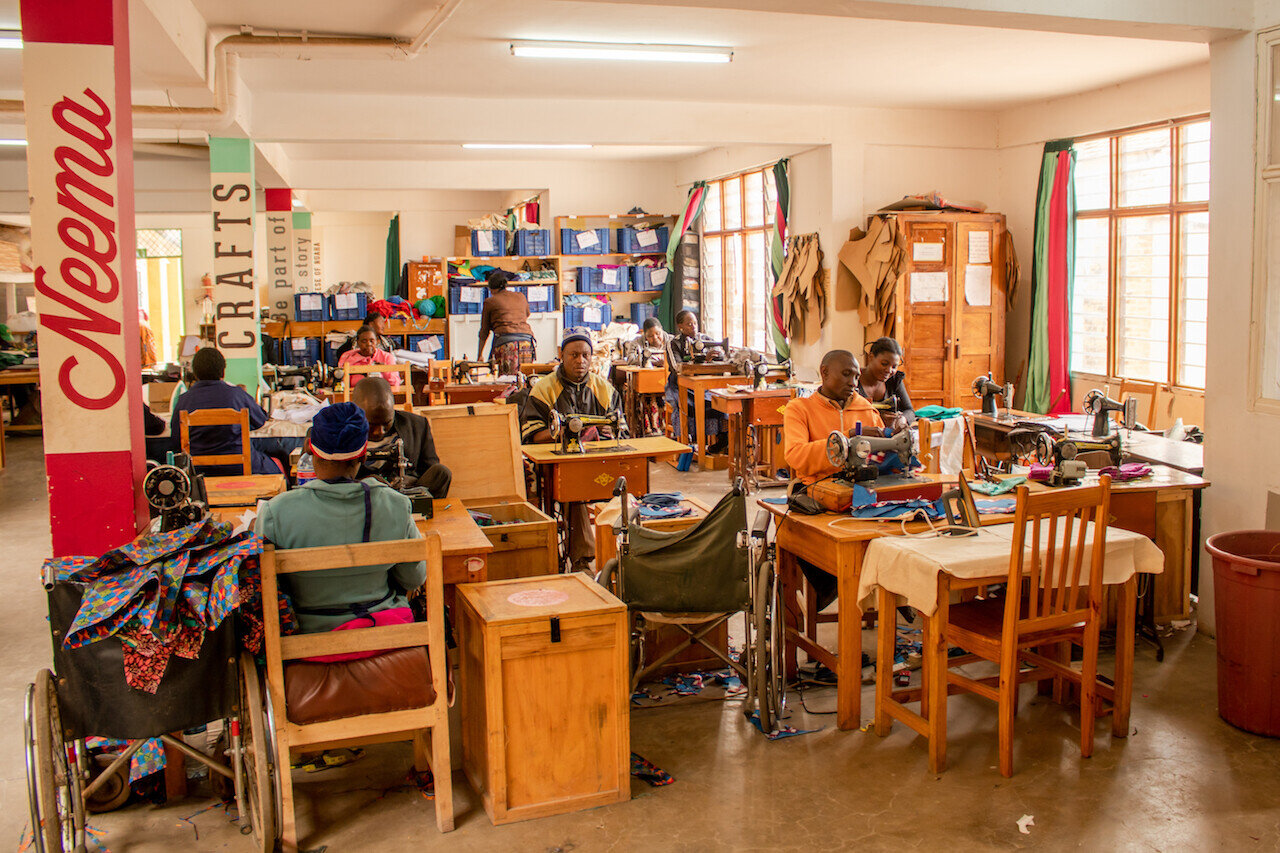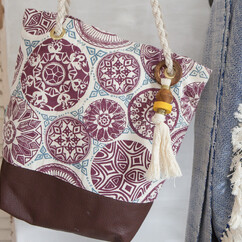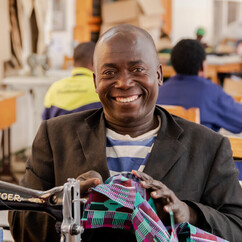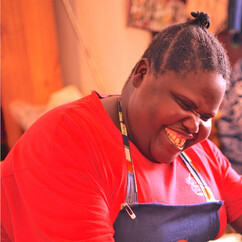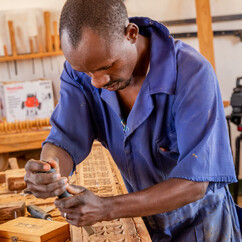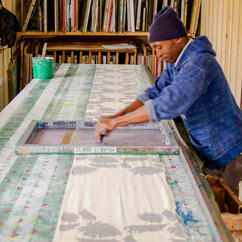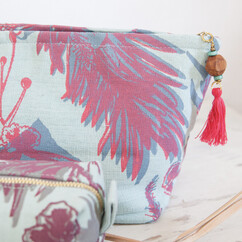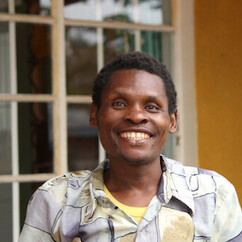Explore our workshops
Here are some of the areas where we employ deaf and disabled artisans, including tailoring, carpentry, weaving and more...
Tailoring
This is the largest and busiest workshop area at Neema. Due to the popularity of our tailored items we have many orders coming through this department each week. From make-up purses to cushions, bags to toys.
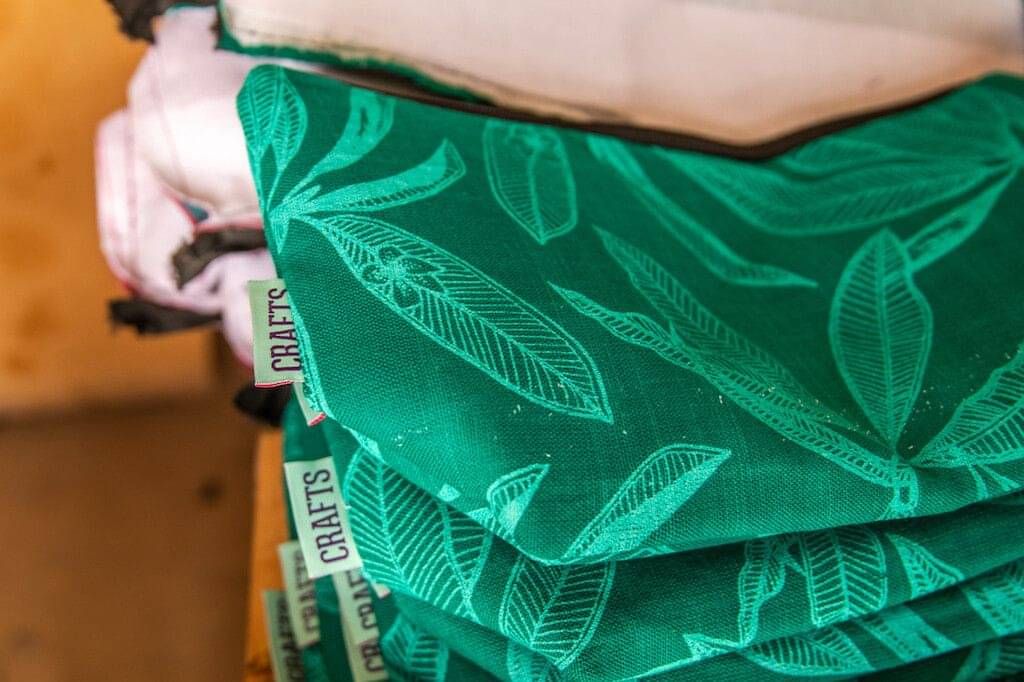
We usually use hand or foot powered machines according to the ability of the operator. We try to avoid electric machines because of unreliable power and also it means that trainees can continue to produce items from home as outworkers or if they go on to set up their own businesses – many people do not yet have power or running water in their homes.
Sophia studied on the tailoring course at Neema Crafts many years ago. She has now become a teacher herself passing on those skills to others.
"I love my job and I particularly like learning new skills and making different products each week. I now have my own house built with help from Neema Craft’s Housing Committee and I live there with my cat."
Carpentry
The carpentry department increased the scope and quality of crafts at the centre. It has allowed us to employ more disabled artisans and raise more money to invest back into our employees. The department produces beautiful turned items such a lamp-bases, candle holders and wooden beads. Key rings, napkin holders and other household accessories are embellished with Zanzibari style wood-carvings.
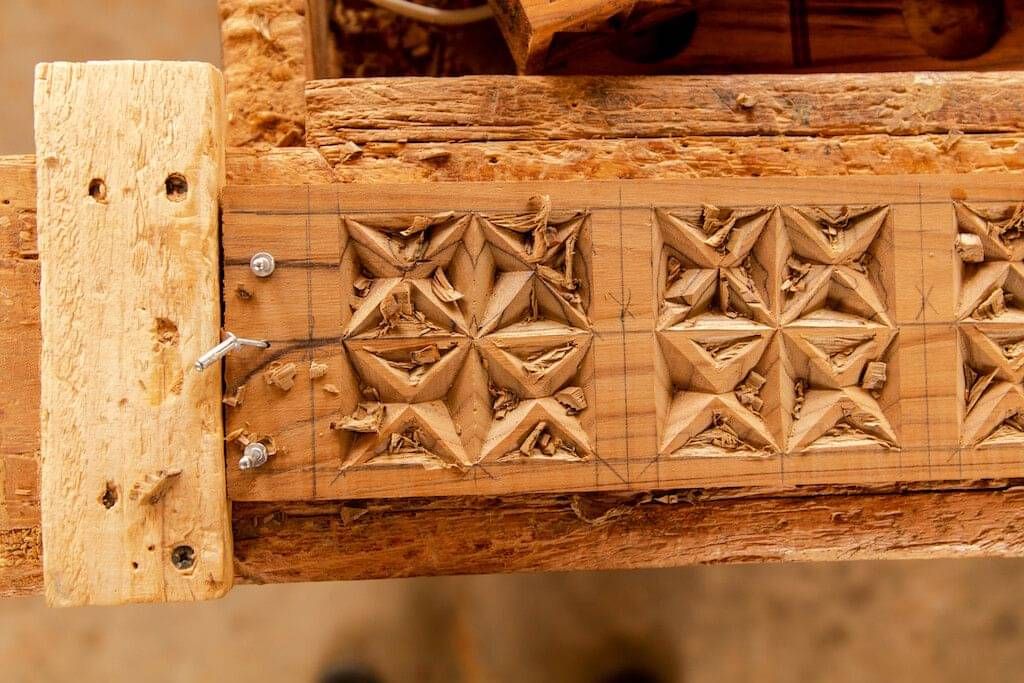
This department is where we create beautiful furniture, lighting, chopping boards and more with the use of our sustainably sourced teak from the Kilombero Valley. The ingenuity, skill and potential amongst all of our trainees in carpentry is very exciting and it is often the area in which new product ideas are developed.
David works in the carpentry department. He was 7 when he lost his hearing...
"I work in the carpentry department making lampbases, which I really enjoy. I have many friends here and like the community."
Weaving
Weaving is a great craft to teach people with disabilities as people with a wide range of ability levels can work together. Some looms use hands only, whilst others need the use of one or two legs.
Weaving is a very therapeutic activity and many of the physically disabled workers who come to us have been through immense trauma and suffering in their live. The process of creating something beautiful by hand, surrounded by others who have similar stories, is perhaps one of the best ways for our trainees to gain confidence and dignity again.
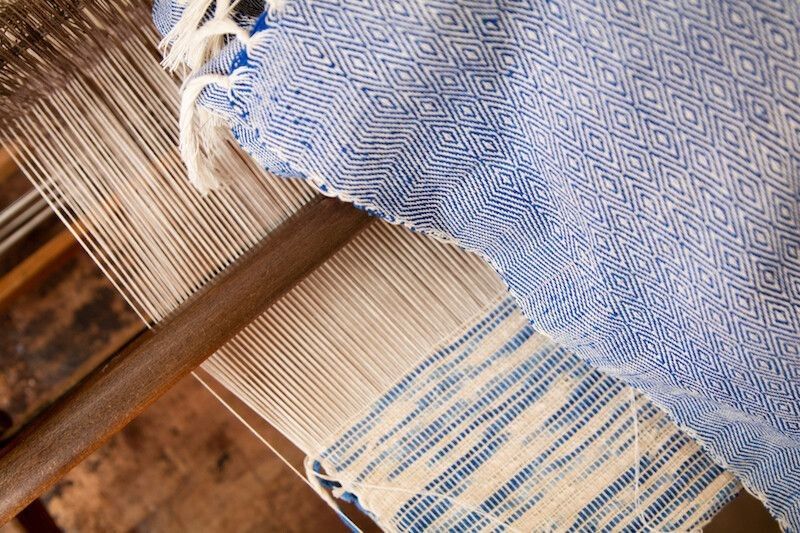
Chaula is the manager of our weaving department. He was three when he contracted polio and lost the use of his legs, but his parents were determined to give him a good education, which is why he now speaks good English and is such a respected teacher.
"I love the work I do, particularly making scarves. I design them on different looms and enjoy seeing the finished product. I know I have a steady income and hope to save enough to one day buy a farm for my family."
Screen Printing
The screen printing department is a vital element of our production as it supplies materials for both tailored items and our very popular lampshades. Over the past few years, it has received many fresh designs from our in-house designers and volunteers which our customers love.
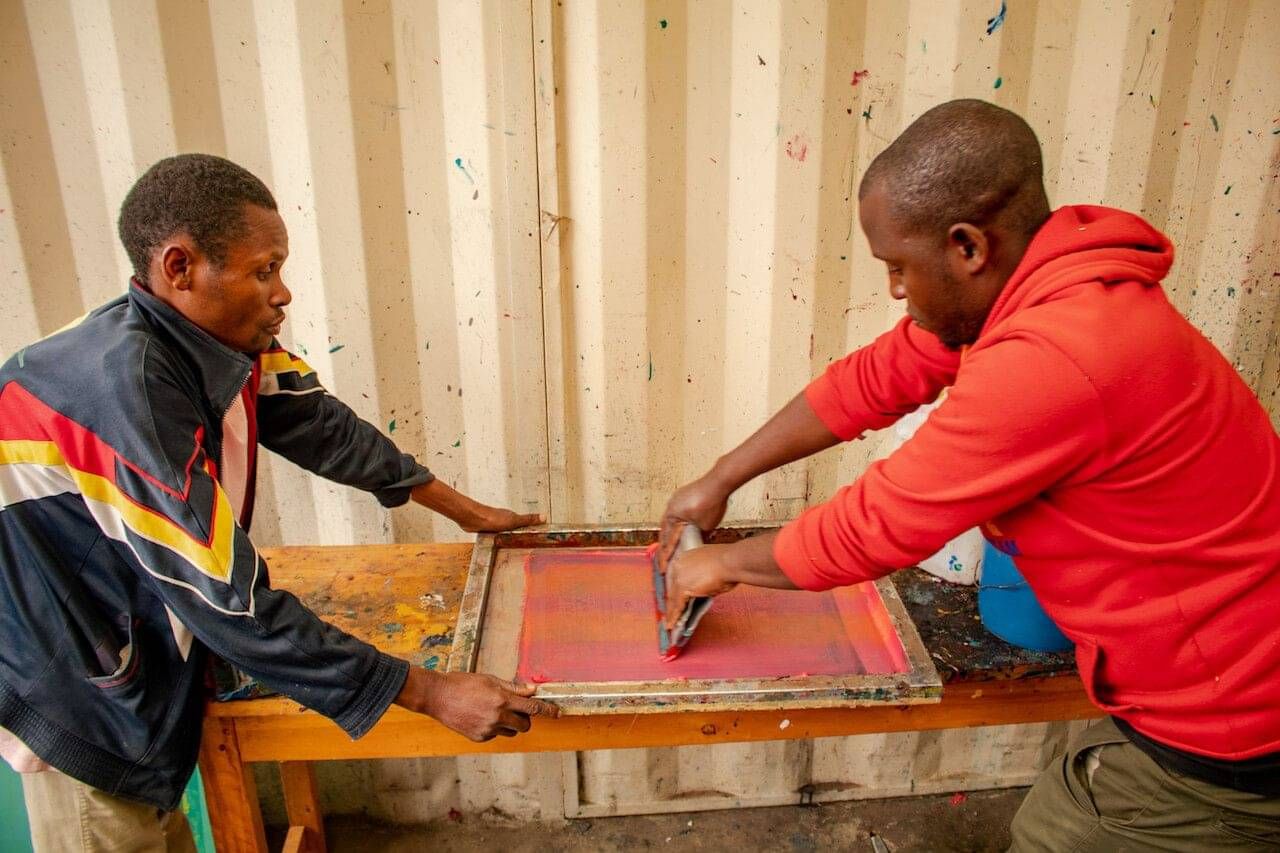
The deaf-run department is ably headed up by Sergio who, with his colleagues Kannie, Siro and Godfrey, produce long runs of beautiful print designs.
"When I was 11 years old, I got sick and since that day I have not been able to hear anything. I had heard about Neema Crafts from my friends after I finished my education in Uganda. I decided to apply for a job here. I was happy when I was able to start working in the screen printing department, and have been here ever since!"
Paper
The paper making area is headed up by Josephat, one of the founding members of Neema Crafts. He works hard to make our popular hand-made paper for our greeting cards and packaging for large clients.
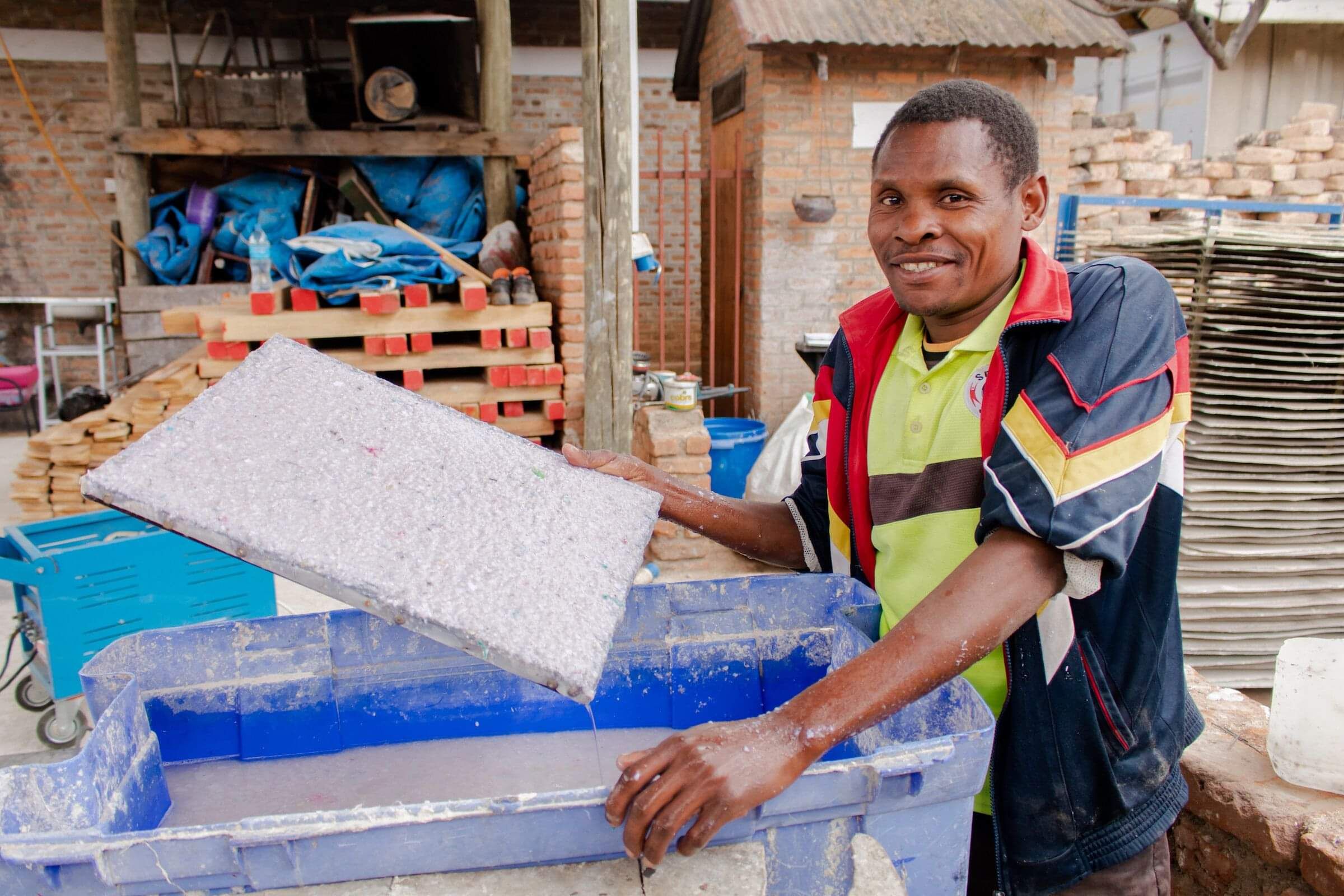
Josephat makes two types of paper, using locally sourced recycled materials, maize leaf and elephant dung paper. Hand-made paper is perfect for our context as it is low technology, environmentally friendly, and uses free waste materials. It also has lots of different stages so everyone in a mixed ability group can take part. Our customers love the hand-made, organic look.
